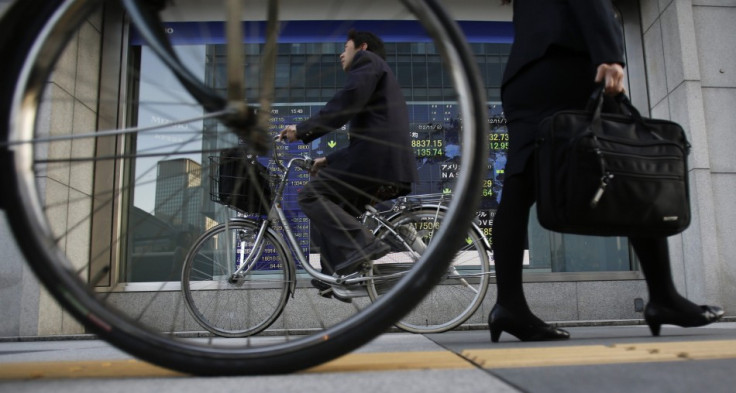Asian Markets Rise on Greek Bailout Deal
Focus expected to shift back to the US 'fiscal cliff' negotiations

Asian markets have gained in the morning trade as eurozone concerns eased after the bloc's finance ministers and the IMF struck a deal to release the much-needed bailout funds for Greece.
Japan's Nikkei gained 0.38 percent or 35.97 points to 9424.91 at 02:56 GMT. Synthetic fibre manufacturer Toyobo Company and financial firm Fukuoka Financial Group were the major gainers, up 4.72 and 4.69 percent respectively.
South Korea's KOSPI rose 0.98 percent or 18.61 points to 1927.12. Pharmaceutical firm Wooridul Life Sciences, up 12.14 percent and apparel maker Kukdong Corp which gained 8.49 percent traded highest.
Hong Kong's Hang Seng index traded 0.33 percent or 71.25 points higher to 21933.06. Casino operator Sands China gained the most, up 2.91 percent, followed by retailer China Resources Enterprise, trading 1.86 percent higher.
China's Shanghai Composite Index slipped 0.65 percent or 13.14 points to 2004.32. Major losers were apparel maker Jiangsu Lugang Science and Technology Company, which dropped 8.60 percent and chemical major Guizhou Red Star Developing Company, down 7.84 percent.
Traders were encouraged after the eurozone finance ministers and the International Monetary Fund (IMF) reached an agreement to bring down Greece's debt by 40 bn euros after a 12-hour marathon third meeting in Brussels. The debt level is now expected to reach 124 percent of the GDP by 2020.
The deal paves ways for Greece to receive its vital bailout funds. The Eurogroup chairman Jean-Claude Juncker has said that Athens will get its next tranche of aids on 16 December. Greece had earlier made it clear that it urgently needs the aid to stay afloat.
But the dollar dipped following the news, prompting exporter stocks to drop in Tokyo. Automobile major Honda was down 1.41 percent, while Shares of Toyota and Nissan slipped 1.40 and 1.86 percent respectively.
Focus could now shift back to the US, where concerns on the 'fiscal cliff' weighed strong on Wall Street traders. Reports suggest that President Barack Obama and congressional leaders are continuing negotiations on the matter. Analysts have warned that a failure to avert the issue could push the world's largest economy into recession.
© Copyright IBTimes 2025. All rights reserved.

















